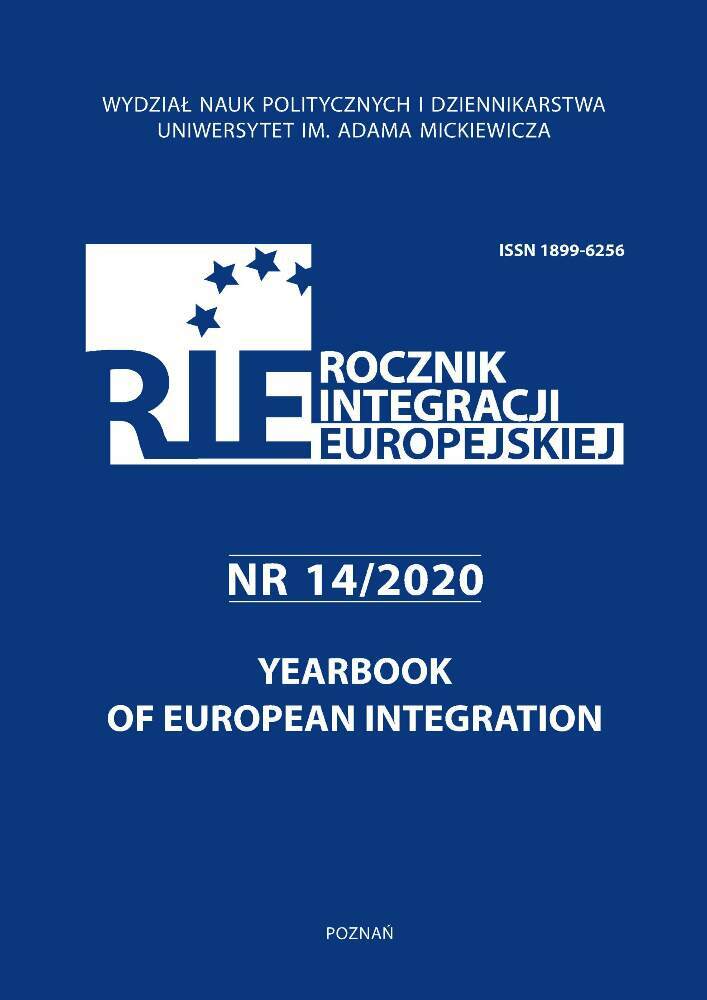Abstrakt
Głównym celem niniejszego artykułu jest przedstawienie politycznych konsekwencji niepowodzenia negocjacji pokojowych na Cyprze w latach 2015–2017 dla Unii Europejskiej. Chociaż przedstawiciele Unii oraz jej instytucji byli zaangażowani w proces negocjacyjny, pozostaje pytanie o rolę, jaką odegrali w jego ramach. Aby znaleźć odpowiedź na to pytanie, należy przeanalizować zarówno przebieg, jak i rezultat prowadzonych rozmów.
Główne pytania badawcze brzmią następująco: jaki był przebieg rozmów pomiędzy przedstawicielami obu cypryjskich społeczności? Co zdecydowało o ich niepowodzeniu i zerwaniu w 2017 toku? W jaki sposób Unia Europejska zaangażowała się w dialog pomiędzy stronami? Jakie są konsekwencje braku porozumienia dla UE? Wybraną metodą badawczą jest analiza źródeł, natomiast techniką badawczą – jakościowa analiza treści aktów prawnych, monografii i artykułów naukowych. Podstawę źródłową stanowią wybrane dokumenty Unii Europejskiej i Organizacji Narodów Zjednoczonych, monografie i opracowania oraz artykuły naukowe.
Finansowanie
Artykuł powstał w ramach projektu współfinansowanego przez Program Unii Europejskiej Erasmus “Jean Monnet Center of Excellence EU EX/ACT- EU External Actions in the contested global order – (in)coherence, (dis)continuity, resilience”.
Bibliografia
Ambitious and proactive: Özersay steps into limelight (2019), “Cyprus Mail”, 23.06.2019.
Christou J. (2018), Anastasiades: failure of talks not Greek Cypriots’ fault, “Cyprus Mail”, 30.05.2018.
Christou J. (2017), Details of the framework paper issued by UN Secretary General, “Cyprus Mail”, 5.07.2017.
Council Regulation (2006) No. 389/2006 of 27 February 2006 establishing an instrument of financial support for encouraging the economic development of the Turkish Cypriot community and amending Council Regulation (EC) No 2667/2000 on the European Agency for Reconstruction, https://ec.europa.eu/info/sites/info/files/2018-aid-programme-annex_en.pdf, 15.07.2019.
Cyprus Settlement Process Under the Juncker Commission: A Timeline (2017).
Ekici T. (2019), The Political and Economic History of North Cyprus: A Discordant Polity, Palgrave Macmillan, Cham.
Forysiński W. (2008), The Europeanization of the Cyprus Problem: Beyond the Catalyst Effect, in: Proceedings of the Sixth International Congress on Cyprus Studies, ed. Ü. V. Osam, Eastern Mediterranean University Publications, Famagusta.
Gramer R., Surana K. (2017), Cracking the Cyprus Code, “Foreign Policy”, 14.03.2017.
Günal A. (2018), What does Turkey want from Cyprus?, in: Cyprus and the Roadmap for Peace: A Critical Interrogation of the Conflict, eds. M. S. Michael, Y. Vural, Edward Elgar Publishing, Cheltenham.
Ioannou G. (2017), The Cyprus Negotiations: What Went Wrong, IPI Global Observatory, https://theglobalobservatory.org/2017/07/cyprus-peace-process-greece-turkey/, 11.07.2019.
Martin H. (2006), Kings of Peace, Pawns of War: The untold story of peace-making, Continnuum, London.
Ioannidou L. (2019), Akinci calls on Anastasiades to participate in five-party meeting, “Cyprus Mail”, 21.06.2019.
Joint declaration on Cyprus (2014), UN Cyprus Talks, http://www.uncyprustalks.org/11-february-2014-joint-declaration-on-cyprus/, 9.07.2019.
Lindahl I. (2019), Notes from the Graveyard of Diplomats: Cyprus 2002–2004, Heterotopia, Nicosia.
Michael M. S.; Vural Y. (2018), A new approach to an old conflict – identyfing the problem and imagining a solution, in: Cyprus and the Roadmap for Peace: A Critical Interrogation of the Conflict, eds. M. S. Michael, Y. Vural, Edward Elgar Publishing, Cheltenham.
Nicosia expects momentum on Cyprus talks after Greek elections (2019), “Cyprus Mail”, 7.07.2019.
Note to Correspondents – Statement from the Conference on Cyprus (2017), United Nations Secretary General, https://www.un.org/sg/en/content/sg/note-correspondents/2017-01-12/note-correspondents-statement-conference-cyprus, 14.07.2019.
Protocol 10 on Cyprus (2003), Official Journal L 236, 23.9.2003, p. 955.
Report of the Secretary General on his mission of good offices in Cyprus (2017), S/2017/814, 28.09.2017.
Report of the Secretary General on his mission of good offices in Cyprus (2019), S/2019/322, 16.04.2019.
Report of the Secretary General: Progress towards a settlement in Cyprus (2018), S/2018/610, 14.06.2018.
Skoutaris N. (2011), The Cyprus Issue: The Four Freedoms in a Member State Under Siege, Hart Publishing, Oxford.
Smith K. E. (2014), European Union Foreign Policy in a Changing World, Polity Press, Cambridge.
The EU’s role in the Cyprus Settlement Process: Questions and Answers (2017), European Commission, http://europa.eu/rapid/press-release_MEMO-17-52_en.htm.

